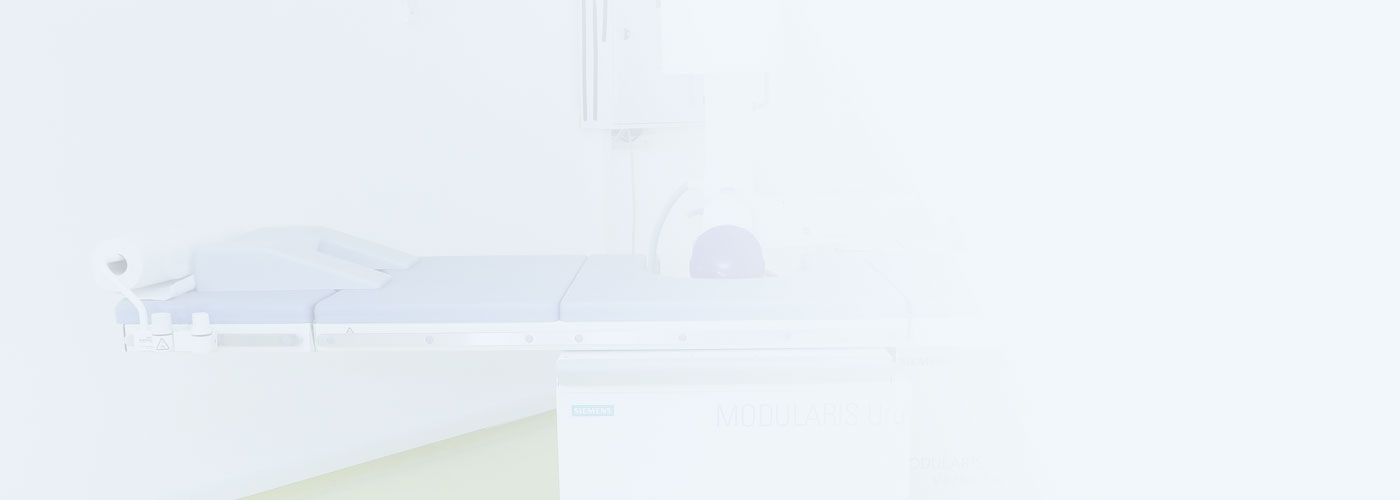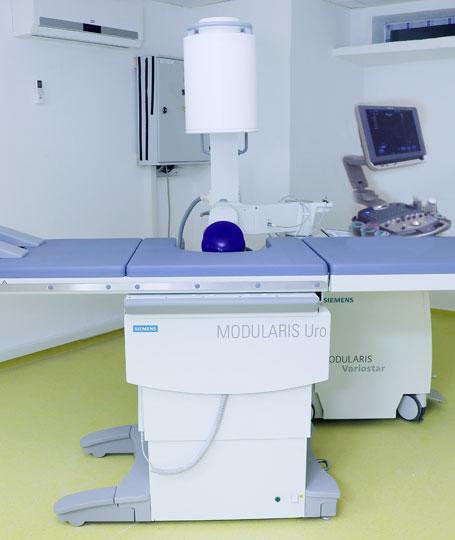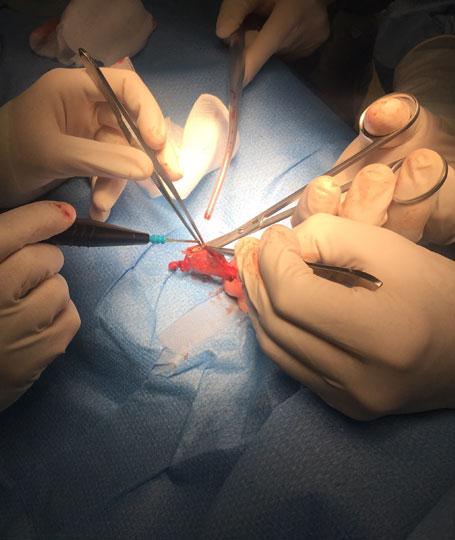
What is urology?
Urology is a medical specialty concerned with the prevention, diagnosis, treatment and rehabilitation of diseases of the urinary tract in men and women, as well as diseases of the male genital organs.
Endoscopic lithotripsy for ureteral calculi is indicated for calculi less than 15 mm in diameter and is resistant to medical treatment and extracorporeal lithotripsy.
Surrounded by a team of the best urologists in Tunisia, the patient benefits from a comprehensive management of the main diseases and conditions of urology.

Urological Surgery Urological Surgery Tunisia
Urological Surgery is dedicated to the diagnosis and treatment of congenital, infectious, lithiasis, traumatic and tumourous disorders of the urinary and genital tracts.
The Urological Surgery Department of the Center's Clinic provides patients with specialized urological surgeons as well as a magnificent patient reception cell that has been set up to serve you. It accompanies the patient throughout his or her journey.
Extracorporeal Lithotripsy Tunisia, the Center's Clinic
Extracorporeal lithotripsy is a technique that consists of removing stones (kidney or gallstones) in fragments using ultrasonic shock waves.
The ultrasonic "shock waves" are directed to the stone at a fixed point previously identified by pelvic or abdominal radiography, by renal ultrasound, or guided directly by radioscopy and/or ultrasound depending on the location of the stone and its calcium content.
The mode of action of the ultrasound is explained by the phenomenon of cavitation. It is the implosion of the vapour bubbles created by the ultrasound in the vicinity or within the calculi that is at the origin of their destruction.
Because the fragmentation is carried out through the skin by an ultrasound generator (the lithotripter) located outside the body, surgical intervention is avoided, even if the procedure is performed in a surgical environment in the operating room. The production of the shock wave can be done by a piezoelectric crystal, by an electrohydraulic effect, or by an electromagnetic field.
Following this procedure, the fine debris obtained from the disintegration of the stone(s) is evacuated through natural channels: in the case of kidney stones, through the urine in a more or less painful way, resembling renal colic or, in the case of gallstones, through the digestive tract and the stool, the eventual pain then resembling hepatic colic.
A technique derived from the fragmentation of calcifications, radial shock wave treatment, is used in rheumatology in cases of tendonitis.


Endoscopic lithotripsy
Preparation
- Blood tests
- AUSP: Urine tree without preparation. This examination, without injection of an opacifying (or radio-opaque) product, allows the study of renal shadows, the edges of the psoas and possible calcium tone opacities, such as renal, ureteral or bladder lithiasis.
- Thorax Rx in some cases
- ECG: Electrocardiogram
- Echocardiography in some cases
Intervention
- Under general or spinal anaesthesia depending on the case
- Lithotripsy is practiced under video camera
- Duration of interventions 1/2h to 1h
- A double j probe is sometimes placed and it will be removed in 10 days.
The Center Clinic offers its patients a global management for endoscopic prostate resection. A reliable team accompanies you throughout your journey, from preparation to post-operative care.
Preparation
Blood test, PUSP, kidney and prostate ultrasound, chest X-ray, ECG, cardiac ultrasound if needed.
Intervention
- Under rachi anaesthesia (so the patient remains conscious during the procedure)
- The intervention lasts one to two hours
- The resection is performed under video camera
Post-operative
- The treatment of postoperative pain is essential in our clinic
- The prevention of thromboembolic accidents is systematic
- The duration of the stay is 3 to 4 days
- The probe is removed on the 3rd day
Post-operative complications
- Burning urination for a few days
- Bladder weakness for a few days
- Transient hematuria after one to two weeks due to pressure ulcer fall
- Retrograde ejaculation with no effect on ejaculation
It is the same protocol described above except that the surgery here consists of a total prostatectomy performed in the open air. In this case, the stay is longer, 5 to 7 days.
Interrogation
- Search for family pathologies
- Lead exposure research
- Excessive use of tobacco or alcohol
- Search for mumps, cryptorchidism, inguinal or inguino scrotal hernia treatment, urinary tract intervention ATCDs
- Clinical examination
- Ultrasound examination and Doppler echo
- Biological examination
- Spermogram after 3 days of abstinence
- Post-coital test
- FSH-LA increased in case of secretory origin
- Sperm biochemistry
- Fructose dosage (decreased in case of seminal vesicle obstruction)
- Determination of zinc, citrate and acid phosphatase in case of prostate abnormalities
- Dosage of carnitine, alphaglucosidases (reduced in case of epididymal obstruction)
- karyotype in case of azoospermia or severe oligospermia


